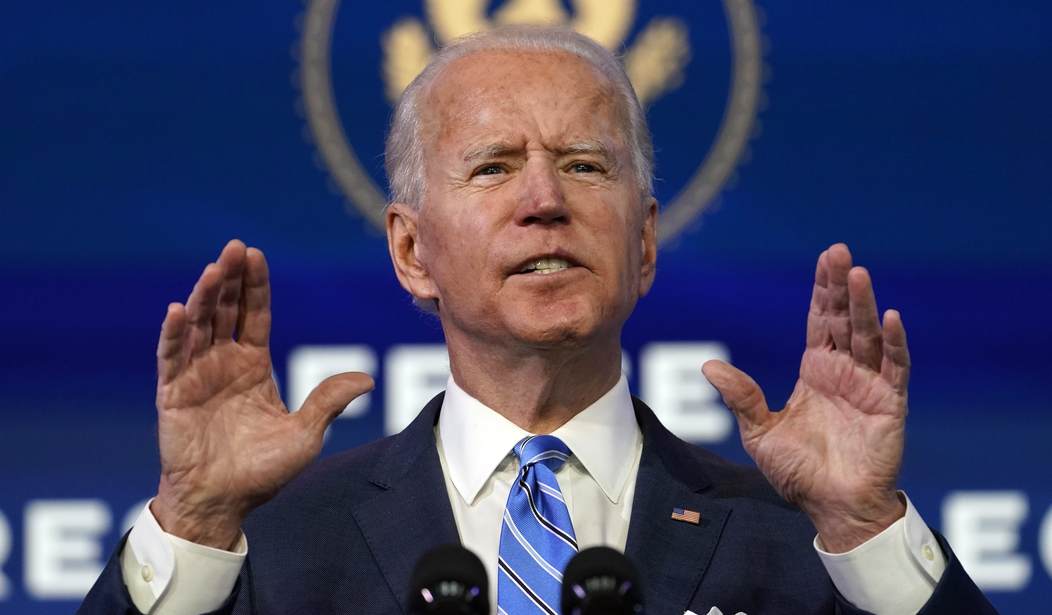Joe Biden is set unleash a flurry of executive actions soon after he’s sworn into office on Wednesday, and while the media has mentioned agenda items like a national mask mandate, rejoining the Paris climate accords, and suspending evictions and student loan payments, reporters haven’t said much about any potential executive actions on firearms.
Unfortunately, the media’s silence on the issue doesn’t mean that gun owners have nothing to worry about. As it turns out, Biden’s campaign website promised several executive actions that he would take if elected, including a pledge to “use his executive authority to ban the importation of assault weapons” while working to pass his gun ban and compensated confiscation in Congress.
Biden wouldn’t be the first president to take that action, unfortunately. Back in 1989, President George H.W. Bush also banned the importation of “non-sporting rifles” into the country, so there is precedent if Biden chooses to do the same. At a time in which firearms are in short supply in most gun stores, this could have an impact on the ability of Americans to purchase a firearm for self-defense, but it won’t impact criminals at all.
While Biden’s campaign platform offered mostly legislative remedies, gun control groups are stepping up with their own wish list of executive actions. In fact, Everytown for Gun Safety is pushing Biden to act on a number of fronts.
So-called ghost guns, purchased in parts and later assembled by their owners, are not tracked by federal law enforcement agencies. Everytown proposes Mr. Biden’s Bureau of Alcohol, Tobacco, Firearms and Explosives reclassify ghost guns as firearms, requiring them to carry serial numbers and be traced like other guns — essentially eliminating their appeal as untraceable weapons.
The group is also requesting that the agency tighten its definition of what constitutes a firearms dealer who is required to comply with federal background checks. President Trump and previous administrations have left it to sellers to determine for themselves if they are full-time dealers, leaving untold thousands of guns to be sold at gun shows and online without federal checks. The Everytown proposal would have the agency set the limit at five guns sold per year to be required to conduct background checks before sales.
Everytown is also asking the Justice Department to require gun dealers to notify the government before a gun is delivered to a buyer when a background check has yet to be completed. Currently, guns can be transferred if a federal background check is not completed within three business days. The group is also asking the Biden administration to create a gun violence task force to put in effect gun control measures across federal departments.
If Biden tries to reclassify unfinished frames and receivers as “firearms” all by himself he’s going to find that executive action challenged in court. A more likely scenario is the BATFE announcing a proposed rule change and public comment period, which would give gun owners some time to respond, as well as to prepare a legal challenge if the change was implemented.
Everytown’s proposal to redefine the definition of a firearms dealer could also run into a legal challenge if enacted by Biden. As the ATF explains:
Federal law does not establish a “bright-line” rule for when a federal firearms license is required. As a result, there is no specific threshold number or frequency of sales, quantity of firearms, or amount of profit or time invested that triggers the licensure requirement. Instead, determining whether you are “engaged in the business” of dealing in firearms requires looking at the specific facts and circumstances of your activities. As a general rule, you will need a license if you repetitively buy and sell firearms with the principal motive of making a profit. In contrast, if you only make occasional sales of firearms from your personal collection, you do not need to be licensed. In either case, all of your firearms transactions are relevant, regardless of their location; it does not matter if sales are conducted out of your home, at gun shows, flea markets, through the internet, or by other means.
If federal law doesn’t have a “bright-line” rule for when a federal firearms license is required, it seems to me that if Biden were to try to impose one via executive action he’d be venturing beyond what the law allows. Expect this potential executive order to face a legal challenge as well if Biden attempts to implement it.
Anti-gun groups will be pushing the new administration to act as quickly as possible on these executive actions. We might not see all of these agenda items implemented on Day One of Biden’s term in office, but I suspect that most or all of them will be enacted within the first 100 days.
Editor’s Note: Want to support Bearing Arms so we can tell the truth about Biden’s radical gun control agenda? Join Bearing Arms VIP. Use the promo code GUNRIGHTS to get 25% off your membership.








Join the conversation as a VIP Member